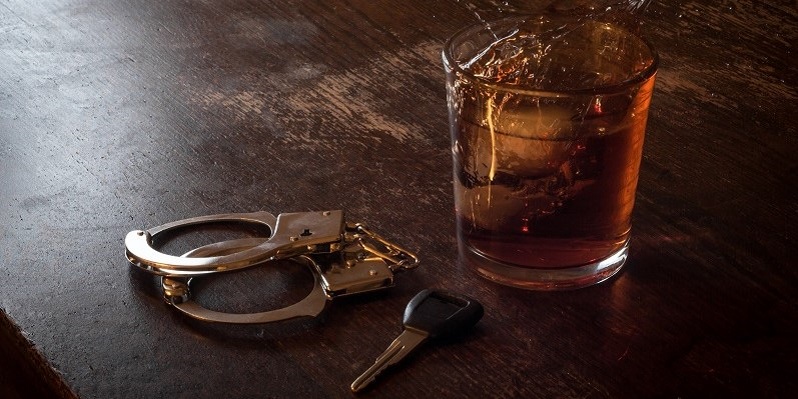DUI Offenses In Dallas TX
Driving Under The Influence or DUI is a criminal offense. In Dallas, Texas, a DUI is technically the charge filed against a minor who is found to be driving a vehicle with alcohol in their system. Generally speaking, the legal limit for blood alcohol concentration is 0.08%. This impairment can be from having a blood alcohol concentration (BAC) of .08 or higher, being under the influence of drugs, or a combination of both.
However, in the case of minors, driving with any amount of alcohol in the blood is illegal. In the state of Texas, a minor is someone who is below 21 years old. Under the Texas Zero Tolerance Policy, a person below 21 years of age is never allowed to drive with ANY amount of alcohol in their system.
This is the only thing that differentiates a DUI from a DWI or Driving While Intoxicated charge. The term “DUI” is often mistaken for “drunk driving,” but this is not an official term and is actually a misnomer. You don’t have to be drunk in order to be arrested and convicted of a DUI in Texas.
In many cases, both DUI and DWI are used interchangeably. Even so, for the purposes of this article, DUI shall be used in the context of general drunk driving. To be clear, a minor may also be charged with a DWI if their alcohol level goes beyond the legal limit.


Getting Arrested For DUI
A DUI arrest is the result of a police stop for any traffic violation. The most common type of alcohol testing in a DUI arrest is the breath test, but blood tests are also available. The location of an arrest can help criminal defense attorneys determine how serious the charge may be.
Breathalyzer Or Blood Test
A breathalyzer can be administered at the scene of an arrest, or a blood test can be drawn later in a hospital.
If you are arrested for DUI and refuse to take any type of breathalyzer test, you will have a one-year driver’s license suspension. The length of the suspension increases with each refusal.
DUI Field Sobriety Tests
A field sobriety test is another tool officers use to establish probable cause for a DUI arrest. Field sobriety tests are divided into three categories: horizontal gaze nystagmus (eye test), walk-and-turn, and one-leg stand. Officers are trained in administering these tests and will often ask the driver to perform two or more of them.
The horizontal gaze nystagmus test involves the officer having you follow a pen or other object with your eyes as he moves it from side to side. The walk-and-turn test requires that you take nine heel-to-toe steps, turn and take nine heel-to-toe steps back. During the one-leg stand test, you are asked to raise one leg about six inches off the ground while counting out loud until the officer tells you to put your foot down.
The three tests are scored individually and added together for a total score of between 0-12 points with 12 being a passing score. A driver who fails the test will be arrested and charged with a DWI offense.
The manner in which these tests were administered can greatly affect the outcome of your case. It is important to note
Definition Of Intoxication & Why It Is Important
It is important to know what “intoxication” means as it relates to DUI or DWI. This is because there can be no crime if a person is not proven to be intoxicated. The Texas Penal Code defines “intoxication” as any of the following circumstances:
- Loss of normal use of one’s mental faculties by reason of the intake of ANY substance.
- Loss of normal use of one’s physical faculties by reason of the intake of ANY substance.
- Reaching the legal limit of 0.08% blood alcohol content.
The law says any of these circumstances can be a reason for a DWI conviction. A competent DUI lawyer should be able to try and protect you from all three allegations.
For a DWI charge to stick it is not even necessary that you consumed alcohol. The law provides that a person may be intoxicated by “alcohol or any other substance”. This means that you may be found guilty of a DWI if you are found to be driving with impaired mental or physical faculties caused by the consumption of alcohol, a drug, a dangerous drug, a controlled substance, a combination of two or more of these. It may also be “any other substance” introduced into the body that causes impairment of mental and physical faculties.
Facing DUI Charges & Penalties For Conviction
A DUI, or driving under the influence, can refer to driving while impaired by alcohol or drugs. In Texas, there are a number of laws that prohibit different activities while intoxicated behind the wheel. These include driving without a license, registration, proof of insurance, and proof of sobriety. Penalties for a DUI conviction can vary depending on the severity of the offense but can include jail time, fines, and driver’s license suspension or revocation.
A first-time DUI conviction is a Class C misdemeanor and results in a fine of no more than $500 and no jail time. Administrative penalties include a 60-day license suspension, community service, and alcohol awareness education.
If a minor is found to have a BAC of 0.08% for the first time, then they are charged with a DWI. A first-time DWI is a Class B misdemeanor and is punishable by up to $2000 in fines and jail time of 3 to 180 days. Additional penalties include a license suspension of up 90 days up to one year. The same is true for an adult.
A second DWI conviction that takes place within 10 years after the first one can mean harsher penalties. This includes a maximum fine of $4000, one year of jail time, and one year of license suspension. Subsequent convictions will carry even stiffer penalties.
The court may sentence an accused to DWI probation instead of having the person spend time in jail. This also brings about a lot of challenges. Among these difficulties is having to comply with probation conditions. These conditions include but are not limited to:
- Attending DWI education classes
- Appearing before a M.A.D.D victim impact panel session
- Payment of fines and court costs
- A complete ban on alcohol intake
- Installation of an Ignition Interlock Device on your vehicle
An Ignition Interlock Device is an in-car breathalyzer installed in your car that prevents you from turning it on unless you do a breath test. If you fail, the test your car will not start.
Aside from these consequences, a DUI/DWI conviction can potentially raise your insurance rate up to three times if the insurance company finds out. The repercussions of a DWI conviction are long-lasting. This is because the effects that DWI accidents on victims are huge and life-threatening. These consequences were designed to discourage people from driving while intoxicated.
Consequences Of A DUI Conviction
In Texas, a DUI conviction is punished with a fine, probation, community service, and alcohol awareness classes. It can also mean lengthy driver’s license suspensions. The process for dealing with juvenile DUIs is very similar to the adult process- the main difference being that the minor’s parents are involved.
A DUI conviction may have minimal consequences, especially a first conviction but it can lead to major issues. A conviction will always reflect on a person’s records. This will later on possibly affect job prospects and housing opportunities.
Many employers conduct background checks on job applicants and may turn down those with any criminal convictions. Landlords also do similar checks and are likely to refuse lease applicants that have criminal records.


How Can A DUI Lawyer Help?
If you are charged with a DUI, it is important to meet with a lawyer to help you understand your options and protect your rights. A good DUI lawyer will be able to explain the legal process to you, advise you on what steps to take next, and represent you in court if necessary. They may also be able to negotiate a plea bargain or get the charges reduced.
A DUI lawyer who is familiar with the process can help you in a variety of ways if you have been injured in an accident that was caused by a drunk driver. They can help you file a civil suit to collect money damages and may be able to negotiate with the insurance company on your behalf.
If you have a criminal record associated with a DUI conviction, they can also help you mitigate the penalties that you are facing. Finally, DUI attorneys understand the ins and outs of the system and can help you make the best decisions for your case. They will ensure that you understand your options and protect your rights.
The Medlin Law Firm
The Medlin Law Firm is a criminal defense law firm with offices in Dallas, Texas. They focus on representing clients that have been charged with crimes. Among these cases are DUI charges. The firm can provide you with an experienced DUI lawyer who can help you sort out your DUI case. They are very competent and will fight to get you the ideal possible outcome for your case.
DUI Lawyer – Top-Rated Representation In Your Area
(214) 888-4810 We cannot receive pictures via text so please send those via email or hand deliver to our office.
(214) 888-4810 No podemos recibir imágenes por mensaje de texto, así que envíelas por correo electrónico o entréguelas personalmente en nuestra oficina.






